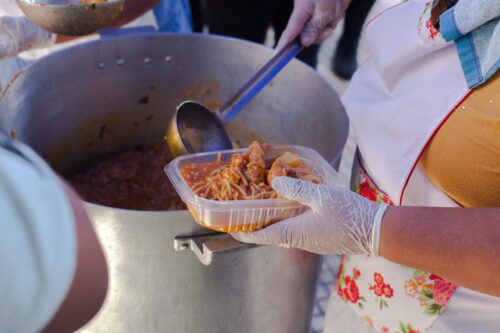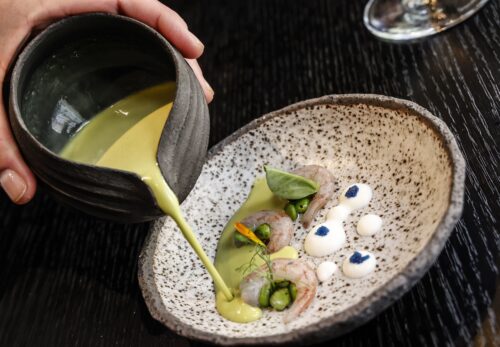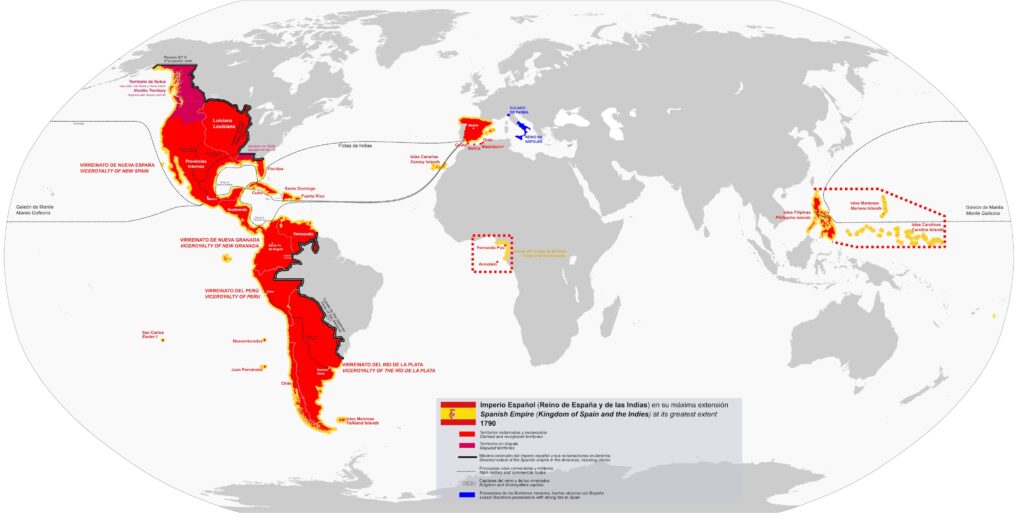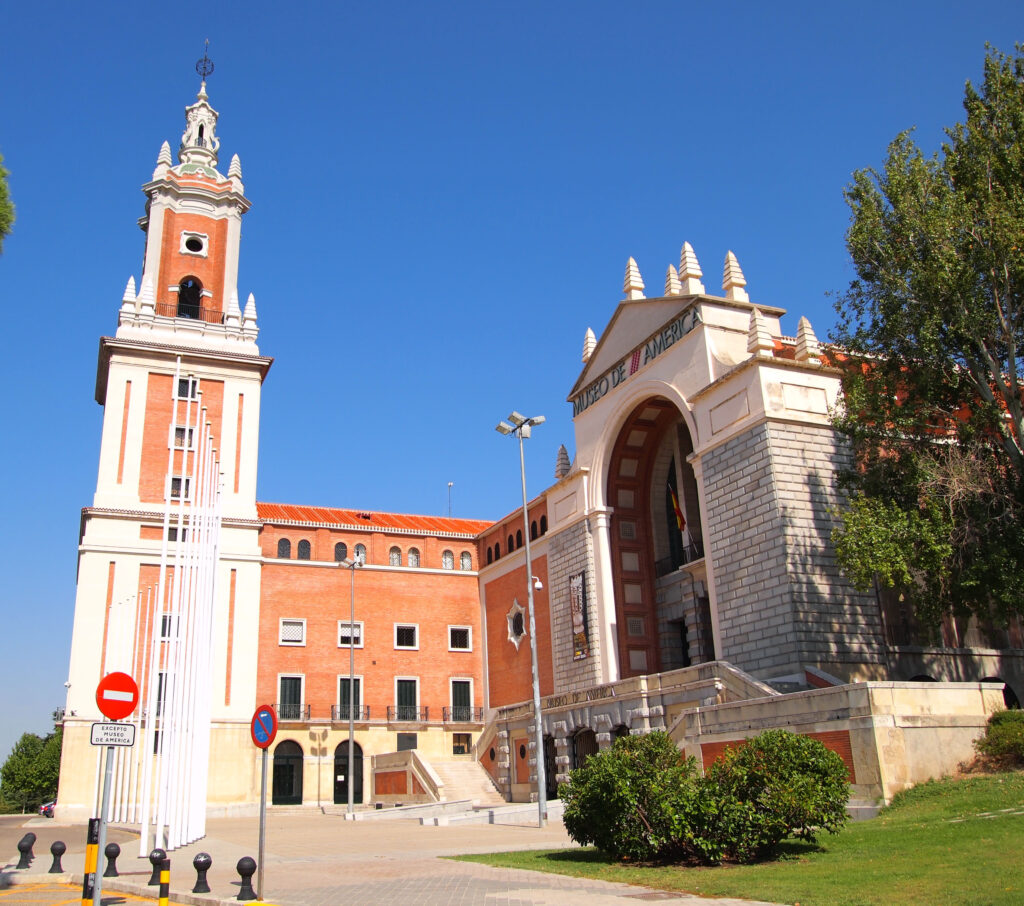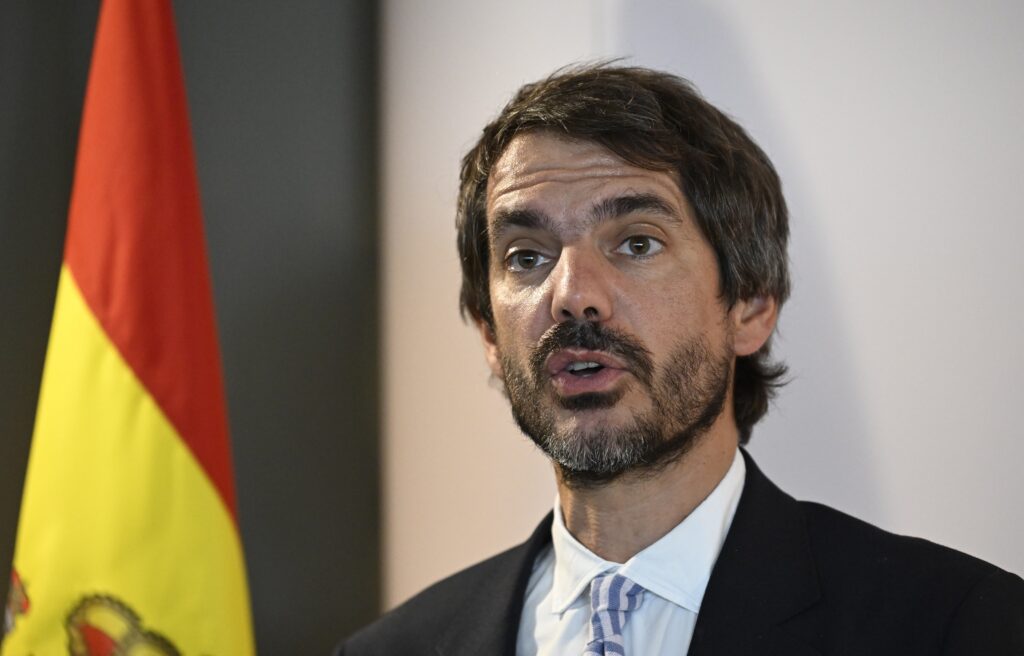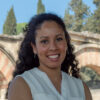Spain’s Move to Decolonize Its Museums Must Continue

WHEN SPAIN’S CULTURE MINISTER, Ernest Urtasun, announced his intention to overhaul the nation’s state museum collections earlier this year, his plan “to move beyond a colonial framework” reopened old wounds and sparked heated debates about national identity and historical representation.
As a multicultural Spaniard with extensive experience in the museum sector, I see the initiative as part of a long-overdue and much-needed reckoning with Spain’s colonial past.
Spain has a deep and far-reaching colonial history, particularly in Latin America. Yet many Spaniards have resisted the concept of decolonization, with a number now positioning themselves against Urtasun’s plans. Critics, like author Cesáreo Jarabo, have argued in the press that “Spain has never had colonies” but rather imperial territories, and as such is exempt from the global movement to decolonize museum collections. “The decolonization of Urtasun is nothing more than another step in the Anglophile agenda to discredit Spain,” Jarabo added. This argument, based on semantics, reflects a narrow and misleading interpretation of Spain’s colonial exploits, which were both extensive and profoundly impactful on a global scale.
The Spanish Empire’s conquest of extensive regions of the Americas and the Caribbean was marked by epidemics, the brutal subjugation of Indigenous peoples, the extraction of massive amounts of wealth through mining, and the enforcement of a rigid social hierarchy favoring European settlers. In Central and South America, beginning with the fall of the Aztec and Inca empires in the 1500s, for instance, this process nearly eradicated many Indigenous cultures and forced the assimilation of others, which left an indelible mark on the continent. The imposition of the Spanish language, religion, and customs compounded the impact, creating a legacy that continues to influence Latin American societies to this day.
Spain’s ambitions were not confined to the Americas. Starting with the Canary Islands in the 1400s, Spain expanded into North and West Africa, notably in Equatorial Guinea, Morocco, and Western Sahara, where colonization led to exploitation of natural resources and social disruption. In Asia and Oceania, Spanish rule for over 300 years introduced Catholicism and centralized governance in places like present-day Guam, the Philippines, and Taiwan, deeply altering the identity and languages of these regions.
As a founding member of the European Society of Black and Allied Archaeologists, I have witnessed firsthand the heavy toll this cultural reckoning takes on those working in the sector. The claim that Spain’s imperialism isn’t true colonization reflects a reluctance to confront the darker aspects of the country’s history, which involved widespread exploitation, violence, and cultural erasure across continents. This view highlights the tension between national pride and historical accountability, and a misunderstanding—or willful denial—of Spain’s global colonial impact.
DECOLONIZING SPAIN’S MUSEUMS
In my work as a curator of archaeological assemblages at the British Museum and as a bio-archaeology researcher at the Natural History Museum in the United Kingdom, I have observed how nations and cultural institutions grapple with their colonial legacies. I have also been actively involved in decolonial efforts at the University of Cambridge, exposing me to the intricate practical challenges and the ethical dilemmas surrounding the restitution of cultural artifacts. Unlike the U.K., which is constrained by legal frameworks such as the British Museum Act 1963, Spain navigates these uncharted waters with a unique set of difficulties and opportunities.
It is crucial to understand that decolonizing efforts in museums do not equate to an immediate, wholesale return of cultural material. The colonial frameworks under which museums were originally established allowed Western powers to amass vast collections of artifacts—often under dubious circumstances. However, not all these acquisitions necessarily warrant repatriation.
Read more from the archives: “Repatriation Has Transformed, Not Ended, Research.”
Before any meaningful action can be taken, museum personnel must first conduct thorough audits to understand what they have in their collections and how their predecessors acquired these objects. The sheer scale of these collections often means that museum staff themselves are unaware of the full extent of their holdings. This lack of knowledge poses a significant ethical issue, as museum professionals have a responsibility to care for these objects, ensuring their proper environmental, storage, and accessibility conditions. Without a clear understanding of what lies within their vaults, museums cannot fulfill this duty.
Once this foundational work is done, museum staff can begin to peel back the layers of colonial frameworks that have historically governed their practices. Indeed, some items were legitimately acquired or gifted, like the Quimbaya Treasure, a collection of over 400 ceramic and gold artifacts from modern-day Colombia dating to 500 B.C. and currently located in the Museo de América in Madrid.
But we cannot overlook the inherent power imbalance that allowed colonial powers to dictate the terms of legitimacy. Through these forces, colonized communities were often deprived of the opportunity to engage with their own heritage in ways that align with their values and self-determination. In some cases, what remains in museum collections is all that is left of these cultures.
Dismantling colonial frameworks is not just about correcting historical wrongs—it is about fostering a new era of reconciliation between communities. By speaking transparently about the past in galleries and public programming, museums like the Museum of Ethnology and World Cultures in Barcelona, can become focal community spaces for healing. In a country like Spain, which is increasingly becoming a destination for immigrants from its former colonies and elsewhere, engaging in this work could help build stronger relationships between the incoming and local populations, particularly at a time when far-right, xenophobic, and anti-immigration sentiments are on the rise across Europe.
Balancing the urgent need for action with the slow, painstaking process of conducting provenance research and due diligence is no easy task. Following industry standards of checks and balances to establish “the recorded history of an object’s ownership” is a process that U.K. institutions have been navigating for decades to varying degrees of success. The University of Cambridge’s Museum of Archaeology and Anthropology, for instance, has been involved in the voluntary restitution of cultural artifacts and empathetic engagement with source communities since the 1960s—a model that Spain could learn from as it embarks on this journey.
AN UNCERTAIN FUTURE
Urtasun’s announcement does not represent a unilateral decision imposed on the state museums. It follows the International Council of Museums’ 2022–2028 Strategic Plan for decolonizing museums and commitments Spain has made at international forums such as UNESCO’s Mondiacult 2022. These frameworks provide Spain with both the support and the roadmap it needs to address its colonial past within its cultural heritage institutions.
However, the sustainability of Urtasun’s push to bring Spanish institutions in line with its global cultural counterparts remains uncertain.
Spanish museum professionals are civil servants with lifelong posts, beholden not only to the government but also to the public. And ministers are presidential appointees rather than elected officials, so there’s always the risk that Urtasun could be removed from his position if his plans fail to gain public support. If state museum professionals are fearful that the subsequent minister could be against the initiative, they might not push for or follow through with the structural change this work requires.
To ensure the longevity of decolonization efforts, transparent communication with the public is crucial. Museum professionals and cultural leaders must engage actively, dispelling misconceptions and honestly addressing the different facets of Spain’s colonial history. For this movement to endure, it is vital that the public not only understands but also expects museums to be introspective and transparent about the country’s past.
Decolonizing Spain’s museums presents a rare and valuable opportunity to improve our understanding of history. This process is not about erasing the past but about acknowledging and rectifying the inequalities perpetuated by the legacies of Eurocentric worldviews. If Spain approaches this moment with transparency and a commitment to open dialogue, it has the potential to transform its cultural institutions into inclusive spaces that reflect the diverse narratives of all who have shaped its history.
